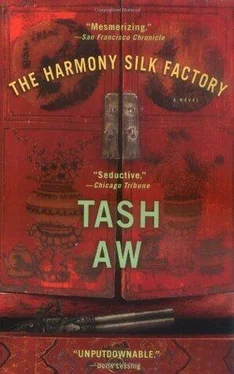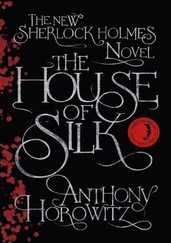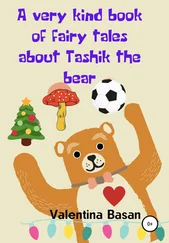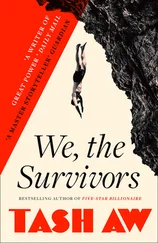“Bloody animals,” Madoc cursed through his moustache, the car slowing to a halt.
Johnny was pointing to a spot on the façade, making wide circling sweeps with his arms, and the workers were nodding acquiescently. He turned around and looked at the car, and for one dreadful second caught my eye. His openmouthed face fell silent, the light in his widened eyes dying even as it flickered to life. I allowed my eyes to glaze over, fixing my gaze at some point in the distance, as if I had not seen him. And then I bowed my head and turned away.
“At last,” said Una. The cattle were beginning to scatter across the widening road, and the car picked up speed.
I wanted to look back but didn’t. Cows cantered clumsily alongside the car until the herd parted and the open road lay before us. It began to drizzle, a light flurry of brilliant watery jewels glinting in the sunlit sky. I lifted my face to the open window, feeling the gathering breeze on my skin as the car sped through the glittering afternoon.
“When the ships sailed into Singapore there were so many people there to greet them,” Una was saying. “It was just like Portsmouth, wasn’t it, Gerald, Portsmouth in Navy Week? And now it’s all gone.”
MY TAXI IS LATE and I am impatient. “Hujan,” rain, the porter-cleaner-cook said, shrugging, when I went to complain a few minutes ago. It explains everything, the rain. Power cuts? Hujan. No post? Hujan. What, no vegetables at dinner? Hujan. Why are you looking so sad today? Hujan. It drips steadily from the eaves outside my window, forming trembling pools on the flagstones below. Out over the silent sea the rain falls in fluttering pulses, like great lengths of translucent cloth caught by the wind. The shapes float across the broad and empty sky, chasing after one another until finally they fade, sinking into the sea.
I sit at my desk and survey my room. Nothing is out of place. The bed is neatly made and not a single objet appears on the surface of the tables. Inside the cupboards and drawers only a few items of clothing and two pairs of shoes remain. I am certain that these will soon find new owners amongst the impoverished, eagle-eyed staff here (who, mercifully, appear untroubled by sartorial trends). When I am removed no one will be able to tell that anyone lived here. All that will remain is a large room of spartan furnishing. The new occupant will move in and fill the place with his own dismal ephemera, and all traces of me will soon be erased.
I am taking nothing with me to Kampar. Only a small box, carefully wrapped in a piece of moonlight-blue cloth. Before I secured the parcel with string I paused and looked at its contents one more time. My drawings for the garden, folded and laid flat at the bottom of the box. On top of that a notebook whose crinkled, yellowed pages I have read a thousand times before, the words repeating nightly in my head. I opened it one last time and looked at the even, rounded handwriting. And then I returned it to the box, along with the final item — a torn fragment of a photograph. In it I am standing alone. My right hand is missing from the picture; the jagged tear runs through my forearm, leaving me marooned and disabled in the jungle. I fill in the image of Snow, composing her from nothingness as I have done countless times before, and the picture becomes whole again. I can see her sitting next to me. My hand rests on her shoulder; she does not shrink from me, but moves her neck to receive my tentative touch. It is my birthday. Though we do not yet realise it, we are already somewhat in love. I am frowning but impossibly youthful; she is placid and half-smiling, her cheeks flushed, hot. In the distance a ravaged building rises from the trees. My gorgeous ruin, fading, as I am, on the sepia-tinted paper.
I hesitated for a moment after I wrapped the box in its silken cloak. I wanted to fling it from my window, out onto the soggy lawn, and myself with it. But I breathed deeply, and the murmur of doubt soon passed. And I am resolute: I shall take these things with me to Kampar and present them at the funeral to the son whom the newspapers say survives his father; they say his name is Jasper. I have no other gift for him, only this little box. So many lives have I changed, destroyed. It makes little difference now, Wormwood.
Forty years have passed since I last saw Jasper. My body has begun to dissolve into the dank air of forty long monsoons and the desiccating heat of forty dry seasons, and yet, strangely, I know I will recognise him. How little he will have changed since the last time, when I stumbled across a group of children at play by a riverbank. He will be older now, his hair will be streaked with grey and his face scarred by the passage of time, but he will be as blithe and carefree as the day he spoke to me, the day when my meanderings led me innocently to him.
Correction: I was never innocent. Even that day, when I had resolved to spend some time in meditative, monastic isolation in the cleansing air of Fraser’s Hill, the purity of my intentions was quickly sullied by the primeval bitterness that resides deep within me; and soon I found I was driving towards the low heart of the Valley, where the flatlands are cleft in two by the great river. I was drawn by the languid flow of the muddy water; the river would run along the road for a time, appearing between gaps in the trees before curving out of view again. I followed it unthinkingly, until finally I came to the outskirts of a small town where the view of the river broadened and bade the weary traveller stay for a moment or two. I knew this place. Did I know that my journey would lead me here? I think, perhaps, I did. I left the car and walked to the riverbank. I could hear the carefree calls of children at play, the splashing of water over the stillness of the afternoon. I sat in the shade of an immense banyan tree, watching the children swing from its thick hanging vines, arcing ever higher into the air, again and again, as if hoping to break free from the constraints of gravity and propel themselves forever into the heavens. They fell silent, unsettled by my presence, and huddled together in the shallows. I shifted uncomfortably, preparing to move away, when one of them swam from his shoal and walked up the slippery bank towards me. He was a boy of ten, perhaps, his slender nakedness unwearied and unencumbered yet by the awfulness of life. The boldness of his loose-limbed stride made me shrink away; I could not bear to look him in the face. I knew — immediately and absolutely — who he was. I heard the wet slap of mud under his feet as he ran the last few steps towards me, slowing to a halt. I felt the weight of his stare but still I continued to look into the distance, pretending not to notice him. Out of the corner of my eye I could see him examining every line, every tiny imperfection on my face, and I felt my skin grow hot. How easy it would be to turn my head now, I thought, and smile. How easy. But I did not. I looked away instead, at the unmoving clumps of elephant grass on the other side of the river, the white spears of their cotton-tipped flowers rising proud above the dull green carpet. At last he walked to the base of the tree and began to climb its lower branches, and then he paused and turned towards me one last time. “You look just like my father,” he said, his voice playful, teasing. “So sad.” And with a laugh he was away again, shimmying and scrambling until he was halfway out on a broad bough. He reached for a vine and, in one fluid motion, launched himself into the air. He went so high I thought the vine might break, but it did not. At the zenith of his untrammelled flight he tilted his head, lifting his chin to face the sun. For a moment — a moment that is embalmed in my mind’s eye — he remained utterly motionless, fixed against the cloudless sky, his arms flung deliriously behind him, face thrust forward to confront the world. Jasper. Clear as crystal, the foundation of a new Jerusalem. Only I was marooned outside the city walls. And then he fell headlong into the river beneath, sinking into its depths. I gathered myself and ran to my car, breathing hard in the damp afternoon. For a second I thought that tears had begun to form in my eyes but I blinked once, twice, and realised that it was just the dust, and soon I was on the road once more, heading away from the Valley. I think I was humming, though I cannot remember the tune.
Читать дальше
Конец ознакомительного отрывка
Купить книгу












